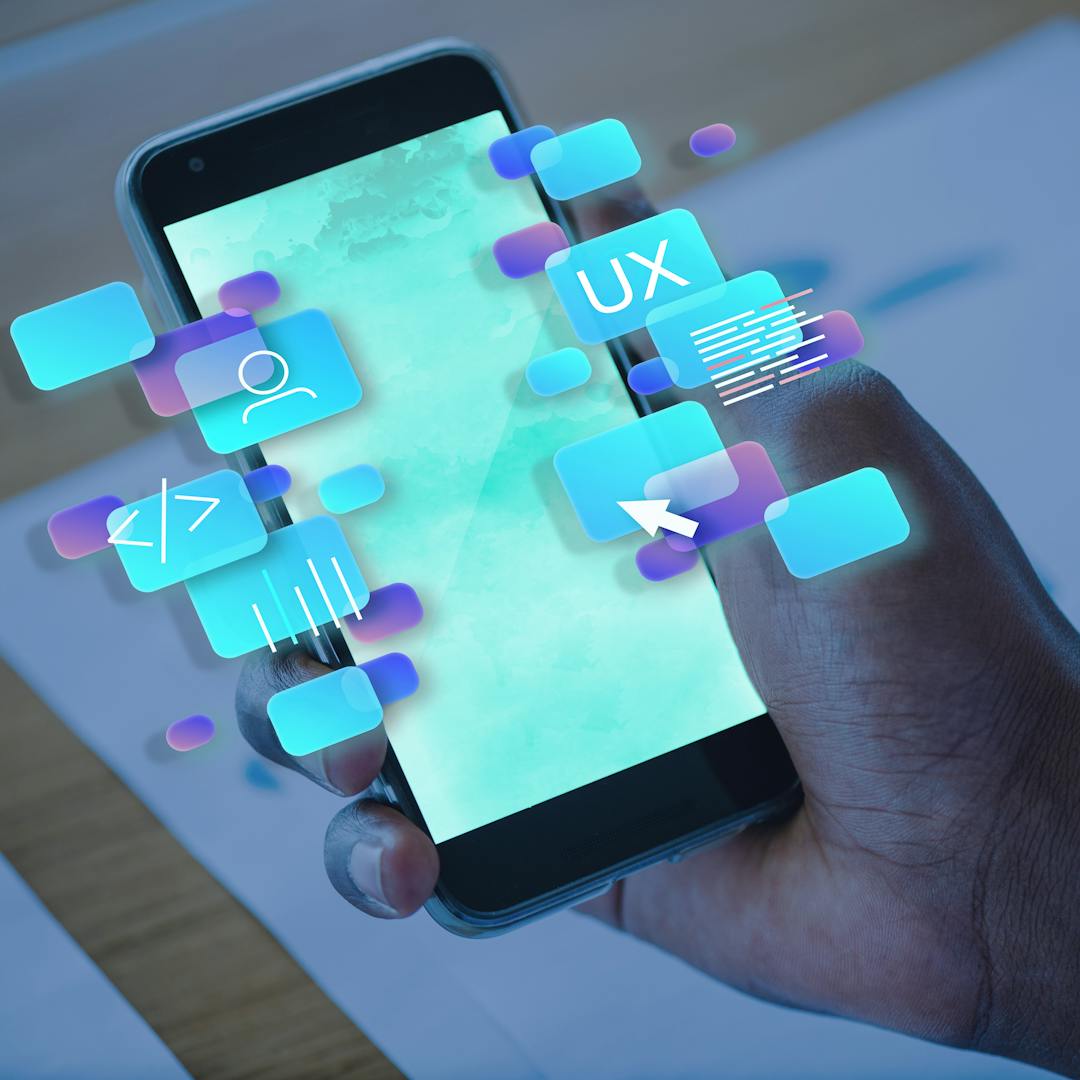MVP App Development Costs in 2024: What You Need to Know

For startups and small businesses looking to break into the mobile app market, developing a full-featured app from the beginning can be costly and time-consuming. This is where a Minimum Viable Product (MVP) comes into play. An MVP is a streamlined version of an app that includes just enough core features to attract early adopters, gather feedback, and validate your concept before committing to more extensive development.
In this blog, we’ll explore what an MVP is, the cost of developing an MVP app, how building an MVP can help reduce overall costs, and real-world examples of successful MVPs.
What Is an MVP, and Why Develop One?
A Minimum Viable Product (MVP) is the most basic version of an app that still provides enough value to users. The goal of an MVP is to test your app idea in the market with a simple version, focusing only on essential features, and then iterate based on user feedback.
Key Reasons to Develop an MVP:
Validate Your Idea: Before investing in a full-scale app, an MVP allows you to test your concept and gather feedback from real users to ensure there’s demand for your product.
Save Time and Money: By focusing on core functionalities, you can get your app to market more quickly and at a lower cost.
Reduce Risk: An MVP helps you avoid spending resources on unnecessary features that users may not want or need, allowing you to focus on what truly matters.
Attract Investors: A working MVP can help demonstrate your app’s potential to investors, increasing your chances of securing funding.
Cost of Developing an MVP App
The cost of developing an MVP app can vary depending on factors such as app complexity, design requirements, and the development team you choose. Below, we’ll break down the typical costs associated with building an MVP in 2024.
1. App Complexity
The complexity of the app’s features has a direct impact on the cost. Simple MVPs with basic functionalities, such as user authentication and a simple user interface, will be cheaper than more complex MVPs that require backend integration, third-party APIs, or data storage.
Simple MVP: Basic apps that offer essential features like user registration, profile management, and content display typically cost between £10,000 and £30,000.
Moderately Complex MVP: Apps that require features such as payment gateways, location services, or social media integrations may range from £30,000 to £60,000.
Complex MVP: If your MVP includes advanced functionalities like AI-driven personalisation, video streaming, or real-time data processing, development costs can reach £60,000 to £100,000 or more.
2. Design and User Experience (UX)
A strong user interface (UI) and user experience (UX) are critical for ensuring that early adopters find your MVP easy and enjoyable to use. Design is a key factor that can affect both the timeline and cost of development.
Basic UI/UX Design: If you’re working with simple, pre-built templates or standard design elements, expect to pay around £3,000 to £8,000.
Custom UI/UX Design: Apps that require unique branding, animations, and a highly tailored user experience may cost £8,000 to £20,000 or more.
3. Development Team Size and Location
The cost of hiring developers varies significantly depending on their location and expertise. Developers based in North America or Western Europe typically charge more than those in Eastern Europe or Asia, but working with a skilled team is crucial for the success of your MVP.

Freelancers: You can hire individual developers or designers on a freelance basis, with rates ranging from £25 to £100 per hour.
Development Agencies: Full-service development agencies may charge £50,000 or more for an MVP, but they provide a team of experts, including designers, developers, and project managers.
Offshore Development Teams: Working with teams in regions such as Eastern Europe, India, or Southeast Asia can reduce costs, with rates starting at £15 to £50 per hour.
4. Testing and Quality Assurance (QA)
Testing is a critical part of MVP development to ensure that the app works as expected and delivers a smooth user experience. This involves checking for bugs, performance issues, and compatibility across devices.
Basic QA Testing: For simple apps, you can expect to spend around £2,000 to £5,000 on testing.
Complex QA Testing: For more feature-rich apps, testing may cost between £5,000 and £10,000, especially if cross-platform compatibility is required.
Total Cost Estimate:
For a typical MVP, businesses can expect to pay anywhere from £20,000 to £60,000 depending on the app’s complexity, design, and development approach. More advanced MVPs with additional features and custom designs may cost £60,000 to £100,000 or more.
How Building an MVP Can Help Reduce Overall Costs
Developing an MVP is not just about launching a simplified version of your app; it’s also a strategic approach to controlling costs and minimising risk. Here’s how building an MVP can help reduce overall development costs:
1. Focus on Core Features
An MVP prioritises the most important features that users need to solve a specific problem. By cutting out non-essential functionalities, you reduce both development time and cost. This means you can get your app to market faster and with fewer expenses.
Benefit: Rather than spending months (and additional money) building a fully-featured app, an MVP allows you to focus on delivering value through essential features.
2. Early Market Validation
By launching an MVP, you can quickly gauge market interest in your app. If the feedback is positive, you can confidently move forward with further development. If not, you’ll have the opportunity to make adjustments without having sunk a large amount of money into the project.
Benefit: Avoid the costs associated with building unnecessary features and make data-driven decisions on which features to build next.
3. Iterative Development
Once your MVP is in the hands of users, you can gather feedback to refine and improve the product. Instead of building everything at once, you’ll iterate on your app based on real user input, reducing the risk of costly mistakes.
Benefit: With each iteration, you’re able to make targeted improvements, reducing the chances of wasting resources on features that aren’t valuable to users.
4. Attract Investors and Funding
A working MVP can serve as a powerful tool to attract investors and secure funding. By demonstrating the potential of your app through a functioning MVP, you can raise capital to fund the further development of the app.
Benefit: Raising capital early in the development process can offset future development costs and enable you to scale the app with a larger budget.
Real-World Examples of MVPs
Many of the world’s most successful apps started as MVPs. Below are some notable examples:
1. Instagram
Instagram originally launched as an MVP focused solely on photo sharing with basic editing tools. The founders wanted to validate whether users would embrace a photo-centric social media platform. After receiving positive feedback, they scaled the app to include features like video sharing, stories, and messaging.
MVP Features: Photo sharing, simple filters, and user profiles.
Current Features: Video sharing, Instagram Stories, shopping features, messaging, and much more.
2. Dropbox
Dropbox started as a simple MVP with cloud storage functionality. The initial version allowed users to upload, store, and access their files from anywhere. After gathering feedback from early users, Dropbox expanded its features to include file sharing, collaborative tools, and syncing across devices.
MVP Features: Basic file storage and access.
Current Features: File sharing, syncing across devices, team collaboration tools, and security enhancements.
3. Airbnb
Airbnb began as a basic MVP to test the concept of renting out spaces online. Initially, it was a simple website that allowed people to list their homes for short-term rental during conferences. Once the idea was validated, the platform expanded into a global marketplace.
MVP Features: Basic listing service for short-term accommodation.
Current Features: Verified reviews, instant booking, experiences, property management, and more.
Conclusion: The Cost-Effective Power of an MVP
Building an MVP is a smart approach for businesses that want to test the waters before committing to a full-scale app. By focusing on the most essential features and reducing unnecessary complexity, an MVP allows businesses to get to market faster and at a fraction of the cost of a fully-featured app. Not only does this help reduce risk, but it also allows for continuous iteration based on real user feedback.
Key Takeaways:
MVP development costs range from £20,000 to £60,000, depending on the app’s complexity and features.
An MVP helps businesses save money by focusing on core functionalities and avoiding unnecessary features.
Launching an MVP enables early market validation and provides opportunities to attract investors for future development.
Real-world examples like Instagram, Dropbox, and Airbnb show how starting with an MVP can lead to long-term success.
By understanding the MVP app cost and taking a strategic approach to development, businesses can maximise their resources, test their ideas, and set the stage for long-term growth in the competitive app market.
For more information or to discuss your project needs, visit Mighty Labs or reach out to our team directly.
Ready to have a conversation?
Book a call with us